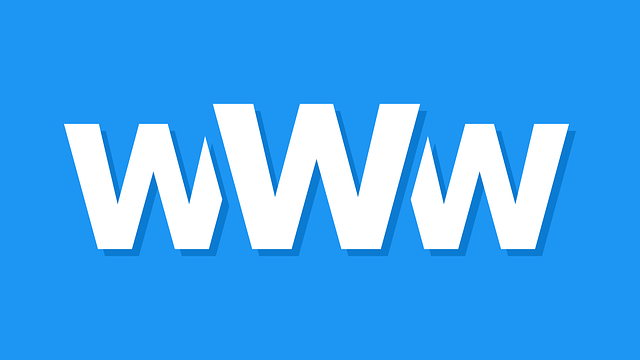Custom web design is a strategic process that transforms online presence into a powerful marketing tool. It involves creating visually stunning, user-centric websites tailored to brand identity and business needs. By combining creativity and technical expertise, designers deliver optimized sites for all devices and search engines, enhancing engagement and driving organic traffic. Choosing the right agency is crucial, focusing on industry knowledge, audience understanding, and collaboration. The collaborative creation process begins with defining goals, followed by design, development, and testing. Cost varies based on project complexity and features, with ongoing maintenance essential for long-term success. Regular updates ensure the website remains secure, relevant, and effective in a competitive online environment.
In today’s digital landscape, a high-quality custom website is not just a luxury—it’s a necessity. Understanding the fundamentals of custom web design unlocks immense potential for businesses to connect with their audience and thrive online. This comprehensive guide explores everything from the core benefits of custom websites to choosing the right agency and maintaining your digital asset. Discover how investing in a tailored solution can revolutionize your online presence and drive success.
Understanding Custom Web Design: The Basics

Custom web design is more than just creating a website; it’s about crafting an online representation that perfectly aligns with your brand’s identity and business goals. It involves a meticulous process where every element, from aesthetics to functionality, is tailored to meet unique requirements. This approach ensures that the final product not only captivates users but also delivers an exceptional user experience, setting your business apart in a competitive market.
The basics of custom web design include understanding your target audience, defining key brand messages, and selecting appropriate technologies. By combining creativity with technical expertise, designers and developers build websites that are visually appealing, user-friendly, and optimized for various devices and search engines. This level of customization guarantees that your online presence not only meets but exceeds expectations, providing a solid foundation for digital success.
Benefits of High-Quality Custom Websites

High-quality custom websites offer a multitude of benefits for businesses and individuals alike. Firstly, they provide an opportunity to create a unique online presence that reflects the brand’s identity and values. With tailored web design, every element from layout to functionality can be aligned with specific business goals, ensuring a seamless user experience. Custom websites are also highly effective in terms of engagement; visually appealing designs, intuitive navigation, and optimized content can significantly enhance visitor retention and encourage conversions.
Moreover, custom web design ensures that the site is tailored to target audiences’ needs and preferences. This level of personalization improves accessibility and usability, especially on mobile devices. High-quality websites also contribute to improved search engine optimization (SEO), as they are built with best practices in mind, incorporating relevant keywords, meta tags, and structured data. As a result, these sites tend to rank higher in search results, driving more organic traffic and increasing online visibility.
Key Elements of a Successful Custom Website

A high-quality custom website is more than just a digital storefront; it’s a reflection of your brand and an essential tool for engaging users. To achieve success in this competitive online landscape, several key elements must be thoughtfully incorporated into your custom web design. Firstly, intuitive navigation is paramount. A well-structured site allows visitors to effortlessly find information or make desired actions, enhancing user experience and encouraging longer browsing sessions.
Visual appeal is another critical factor. Striking graphics, consistent branding, and a clean layout not only capture the essence of your business but also instill trust in potential customers. Optimizing for mobile devices is also crucial given the increasing number of users accessing websites via smartphones. Responsive design ensures your website adapts seamlessly to different screen sizes, providing a seamless experience regardless of the device. Additionally, regular updates with fresh content keep your site relevant and improve search engine rankings through SEO best practices.
Choosing the Right Custom Web Design Agency

When it comes to crafting a high-quality custom website, selecting the ideal custom web design agency is paramount to your success. It’s crucial to look beyond eye-catching portfolios and consider their expertise in your industry, understanding of your target audience, and ability to execute your vision effectively. Reputable agencies should offer a collaborative approach, providing valuable insights while translating your ideas into a robust online presence.
Research is key. Read client testimonials, examine their case studies, and check their communication style. The best custom web design partners will engage in open dialogue, ensuring your website aligns with your brand identity and business goals. They should also stay updated with the latest industry trends, implementing responsive designs and optimizing for search engines to enhance your online visibility.
The Process: Building Your Dream Website

Creating a high-quality custom website is an art and a science, requiring careful planning and expert execution. The process begins with understanding your vision and goals. A professional web design team will engage in close communication to translate your ideas into a comprehensive plan. This includes defining the site’s purpose, target audience, and key features, ensuring every element aligns with your brand identity.
Next, the designers bring your dream website to life through custom web design. They craft a unique layout, select appealing visuals, and integrate interactive elements to enhance user experience. The development phase involves coding, testing, and fine-tuning to deliver a seamless online presence. This meticulous approach guarantees not just an aesthetically pleasing site but also one that functions flawlessly across various devices and browsers.
Cost Considerations for Custom Websites

When considering a high-quality custom website, cost is a significant factor that can vary greatly depending on several elements. The scope and complexity of your project play a crucial role; simple static websites are generally less expensive than dynamic e-commerce platforms or portals with advanced features. Custom web design often involves unique, tailored functionalities, which can drive up costs compared to pre-built templates. Additionally, the size of your website, number of pages, and required integrations will influence pricing.
Employing expert developers and designers with extensive experience in custom web design comes at a premium. Their expertise ensures robust code, seamless functionality, and visually appealing designs but may be more costly than using generic solutions or lower-skilled labor. Moreover, ongoing maintenance, updates, and support after launch should be factored into your budget, as these services can vary widely in price based on the provider and service level agreed upon.
Maintenance and Updates: Ensuring Longevity

A high-quality custom website is an investment, and its longevity should be a key consideration. Regular maintenance and updates are essential to keep your site secure, performant, and up-to-date with industry standards. Think of it like maintaining a beautiful garden; you wouldn’t just plant it and expect it to thrive without care. Similarly, a custom web design requires ongoing attention to ensure its continued success.
Updates include fixing any bugs or glitches that arise, keeping security measures current to protect against cyber threats, and integrating new features or technologies that enhance user experience. Regular maintenance also involves content updates, ensuring your site’s information remains accurate and relevant, which is vital for search engine optimization (SEO) and engaging visitors.
